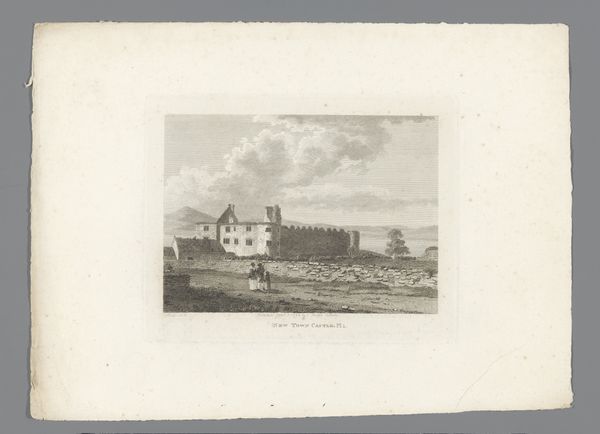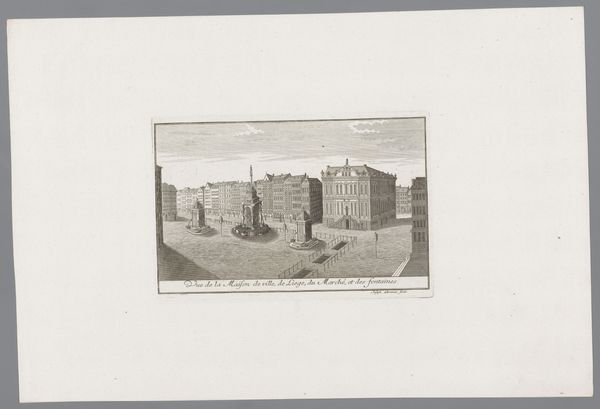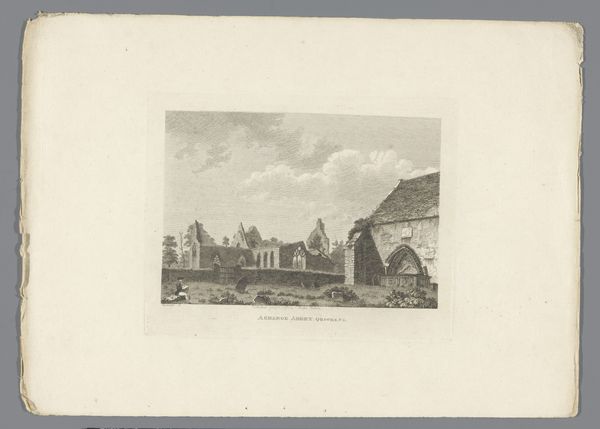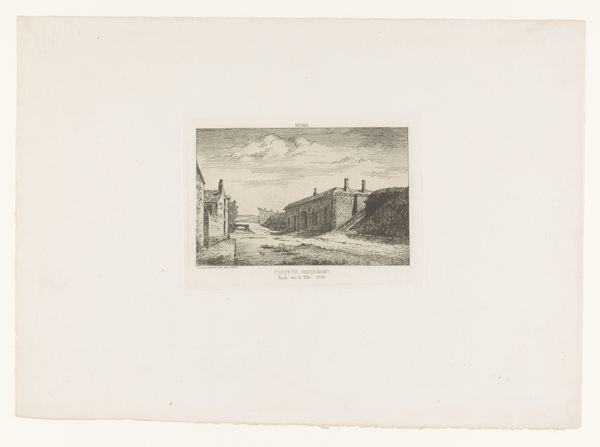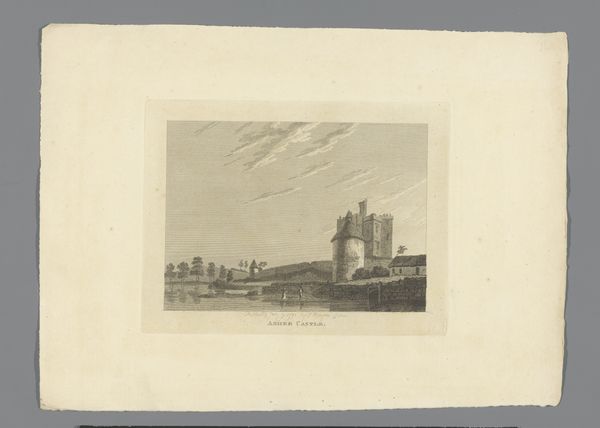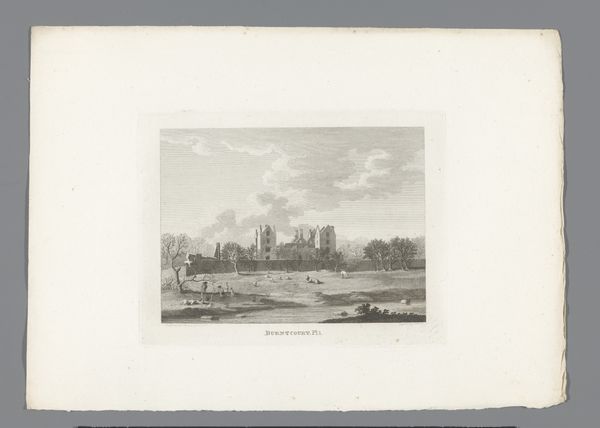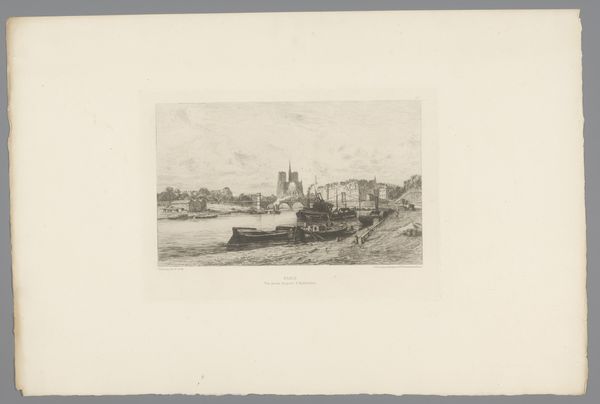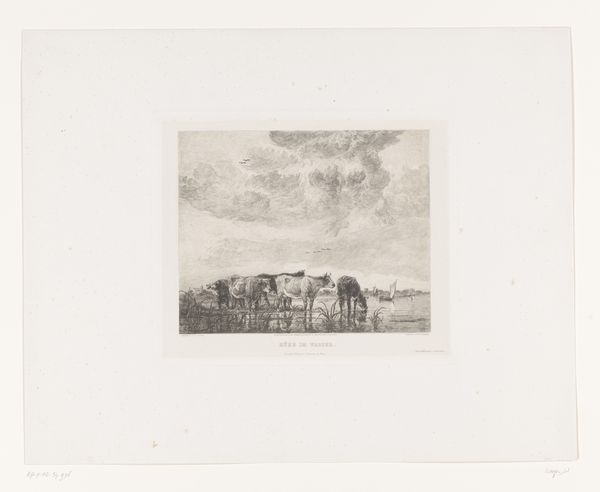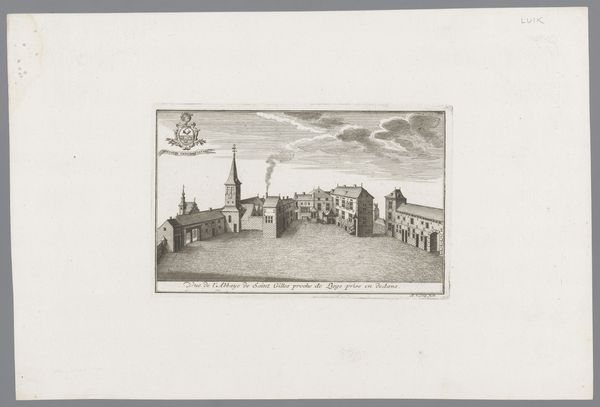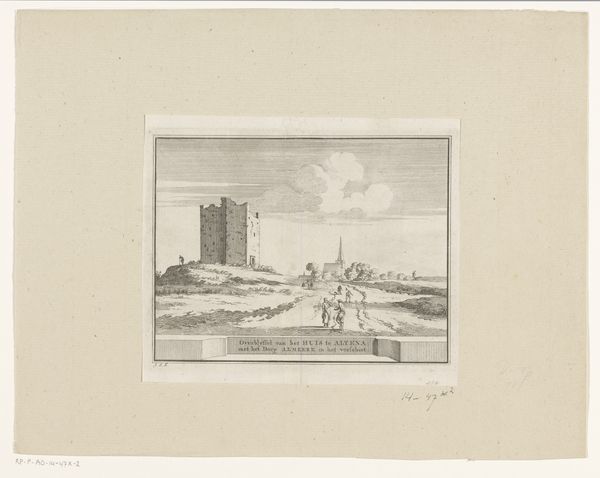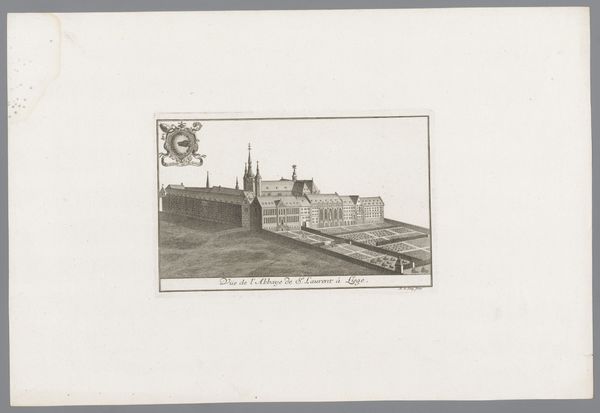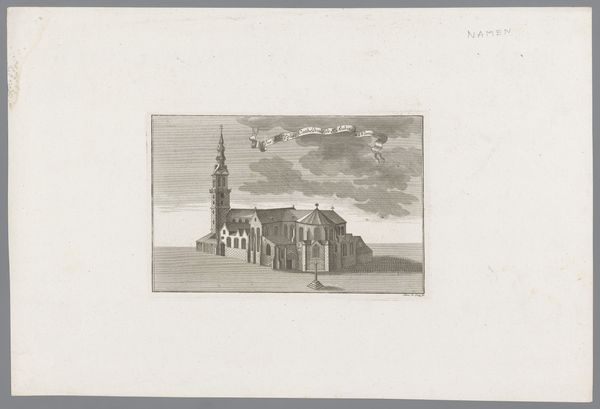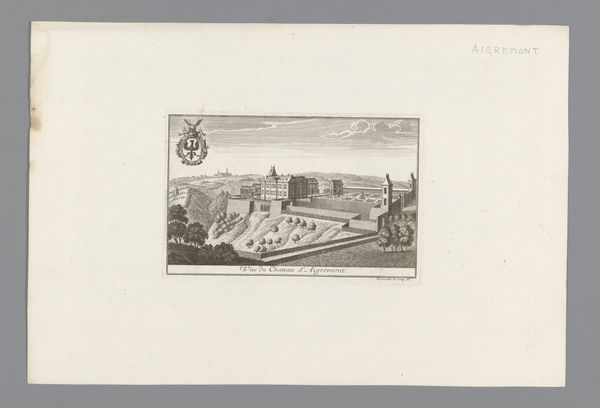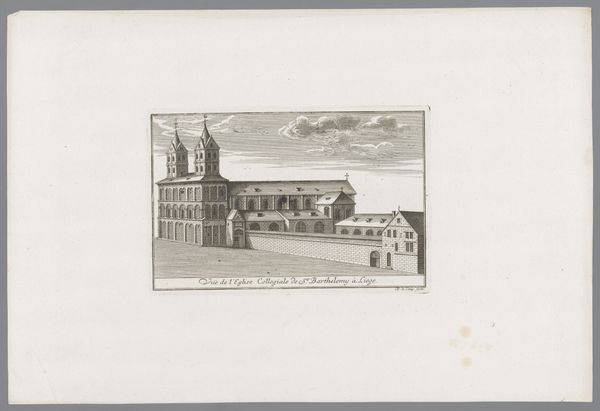
print, etching, architecture
#
neoclacissism
# print
#
etching
#
landscape
#
architecture
Dimensions: height 153 mm, width 200 mm
Copyright: Rijks Museum: Open Domain
James Newton made this print, "Gezicht op Burncourt," using a method called etching. It's a process where lines are bitten into a metal plate with acid, then inked and printed. The etcher's skill is evident in the detailed textures he has created with simple line work. Look at the way he suggests the cut of stone in the building, or the soft foliage with just a few strokes. The whole composition relies on the precise application of craft. But the subject matter—the stately Burncourt House—also speaks to a social reality. Consider all the labor required to build and maintain such a place. Prints like this one played an important role in visualizing social status, allowing landowners to broadcast their success. So, we have a convergence: the craft of printmaking used to visualize the fruits of perhaps less visible labor. Recognizing the connection between materials, making, and social context helps us understand that even an image of a building can tell a much bigger story.
Comments
No comments
Be the first to comment and join the conversation on the ultimate creative platform.
